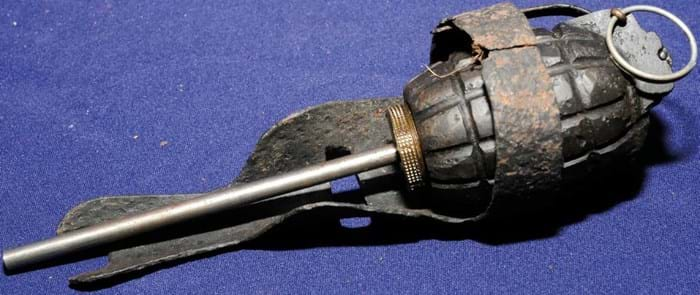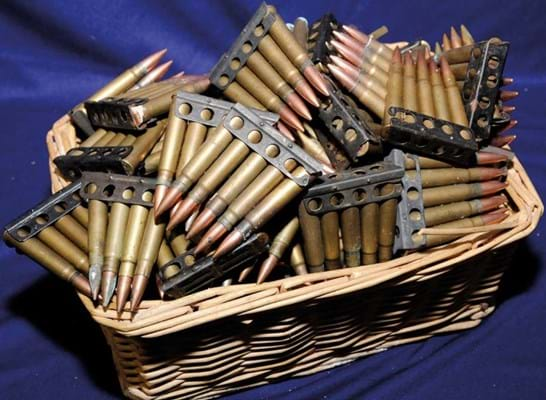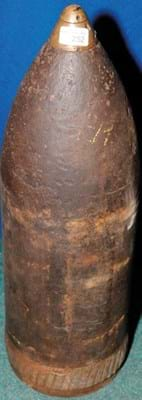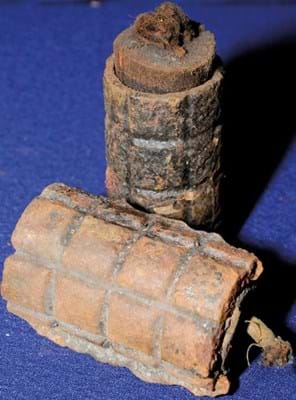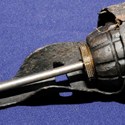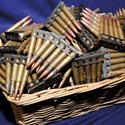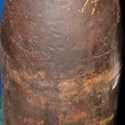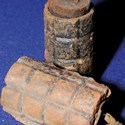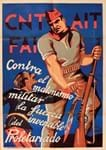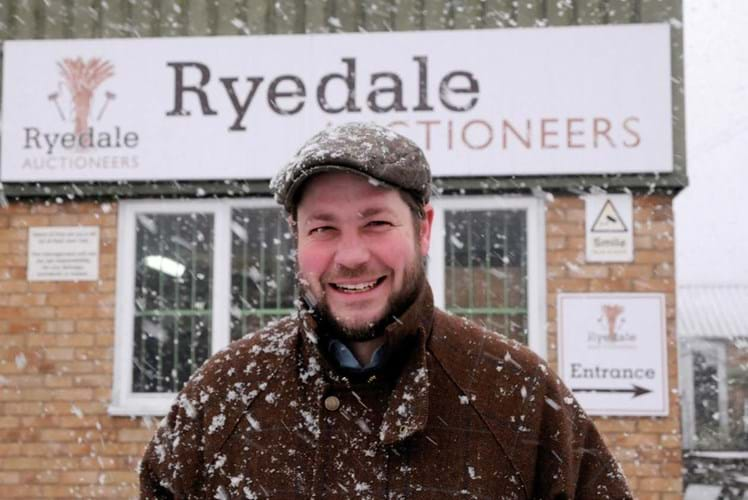
Selling antique militaria can be a delicate business at a time when the police are ever more alert to the risk of the wrong items falling into the wrong hands.
Ryedale Auctioneers, a specialist auctioneer of militaria, found itself at the centre of a security lock-down recently when an anonymous online viewer of a sale, scheduled for October 15, contacted the police to say that he believed there was “a bomb for sale” among the lots.
It was a false alarm. Angus Ashworth, who founded and runs this North Yorkshire saleroom, unscrewed the tops of the Stokes mortar bombs to show the authorities they were free from explosives, but even so, the ruction caused his sale to be unnecessarily delayed. One unfortunate vendor found himself under further investigation, which was later dropped.
The Crown Spindle Mill Collection Sale had to be postponed. A selection of items from the rearranged auction which took place on October 29 is shown below.
Police on alert
The disturbance came as a surprise to Ashworth, a registered firearms dealer who keeps up-to-date with the relevant legislation and security procedures, and has excellent relations with the local police.
But he is nevertheless realistic about the fact that the police are more eagle-eyed these days about the trade in militaria, in particular antique firearms, “because of terrorism, basically”. However, Ashworth argues that “major terrorists aren’t going to get hold of some old-fashioned gun – they will get weapons on the black market”.
Unfair though it may seem to the majority of law-abiding auctioneers, collectors and dealers, the police have reason to be more suspicious because, while breaches of the law in this area may be rare, just one ‘bad apple’ can have very serious consequences.
In November, for instance, Paul Edmunds, an antique firearms dealer, was convicted at a trial in Birmingham of supplying illegal handguns and home-made bullets that have been linked to more than 100 crimes around the country, including murders and attempted murders.
Emerging threat
The National Ballistics Intelligence Service (NABIS) says the trade in antique firearms is “an emerging threat we needed to address”. It notes the number of antique firearms “recovered in criminal circumstances each year” has risen from four in 2007 to 91 in 2016.
The law has responded accordingly, including new EU legislation that “is a higher standard than what we had before”, says Ashworth (see below).
“If you’ve got a deactivated weapon on the old certificate you’re allowed to own it, but it is now illegal to sell it or gift it. There are a lot of people who have deactivated weapons who bring them in to us and don’t realise they need to get a new certificate.
“Because we are registered firearms dealers, we generally get told by the police about the new rules, but if you’re a general auction house that doesn’t do a lot of this thing you could get caught out.”
Thorough process
Expert dealers and auctioneers who handle antique ammunition and ordnance can normally tell from a visual inspection if they are inert and 100% free from explosives, says Ashworth, a former reservist who served in Afghanistan and Iraq.
To become a registered firearms dealer is a thorough and ongoing process that “you have to take seriously”, he says.
It involves detailed background checks on named members of staff who are allowed to handle the weapons, site inspections to ensure the security is up to scratch and random spot checks.
“The police will turn up one day and want to see all the records – with a trade licence you must have a log book of what comes in and goes out,” says Ashworth. “And they will do a stock check, and take weapons out of the armoury and check serial numbers.”
Best be cautious
Ashworth advises any non-specialist dealers in this area, or collectors who are new to it, always to err on the side of caution and consult a specialist militaria dealer or a local registered firearms dealer (such as a gun shop) for advice if they are unsure about the law regarding particular items.
The local police firearms liaison officer is another option. “The police are pretty good,” says Ashworth.
“If you go back 50 years there would have been unlicensed weapons everywhere, especially after the war. We came across one during a house clearance – a .22 revolver that the chap had bought for his wife in case the Germans invaded.
“That’s a Section 5 [ie, prohibited without Home Office approval] weapon now. So they do crop up.”
Firearms and ordnance law: the essentials
- A Home Office consultation is under way seeking to define the description of ‘antique firearm’ in law for the first time (see ATG No 2314, October 28). The consultation will also consider changing the cut-off date of manufacture (currently 1939) after which all firearms must be licensed. This could be put back to 1900.
- Legislation was introduced in 2014 in Britain that means someone who has served or received a criminal sentence can no longer possess an antique firearm. Any antique dealer or auctioneer who sells to someone they know to be an ex-offender is committing a criminal offence.
- On May 2 this year, Section 128 of the Policing and Crime Act 2017 came into force, which means it is also illegal to sell, exchange, transfer or gift a deactivated firearm (even those carrying previously legal certification) that does not carry new EU certification, which was introduced on April 8, 2016.
- Ordnance is a tricky area for the non-expert. Ideally the item should carry supporting documentation, such as FFE (free from explosives) certification, to confirm it is inert. Collectors should buy only from reputable militaria dealers. If in doubt, seek professional advice or consult the police before taking possession of the item.
For further information on the consultation, and for guidance on firearms licensing law, including antique weapons, see gov.uk
Written by Kate Quill

